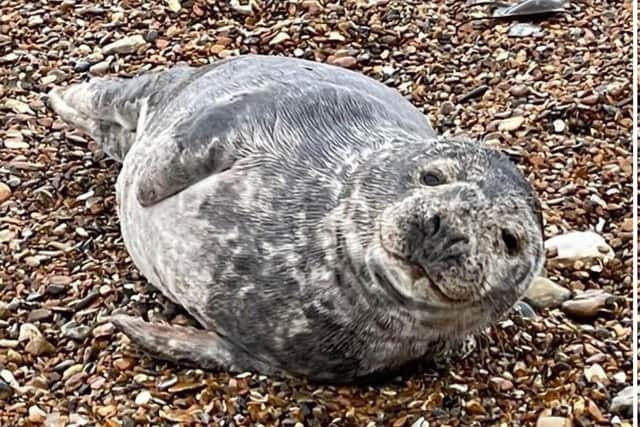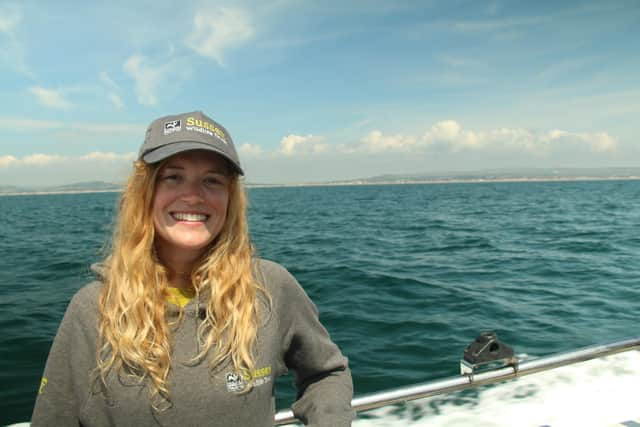Worthing seal sighting sparks new warning amid Avian Flu fears: Everything you need to know
and live on Freeview channel 276
An eye-witness told the Worthing Herald that a seal washed up on the beach in Worthing, opposite the Premier Inn this morning (Tuesday, March 21). They said it was unclear if the seal was resting or had died. Beach patrol officers were quickly at the scene.
It has since been confirmed to have been a stranded seal. Jeff House, coastal warden at Worthing Coastal Office, said: “I attended the beach this morning as a result of several calls from members of the public concerned at the sight of a young seal pup laying on Worthing beach opposite Thorn Road.
Advertisement
Hide AdAdvertisement
Hide Ad"In attendance, I spoke to one of the informants, a local authority worker. They pointed me towards the motionless animal on the shingle.


"Members of the public were starting to gather around the animal and were asked to move back to give it some space and reduce the anxiety people can bring to seals.”
Wadars, a local animal rescue charity, and the local vet had been called prior to the coastal warden’s arrival. Jeff completed a survey of the animal which ‘looked in good health but appeared tired’.
He added: “Due to the incoming tide on Wadars’ arrival, it was decided to move the pup further up the beach should the need arise for it to be taken into captivity for medical assistance.
Advertisement
Hide AdAdvertisement
Hide Ad"Once given the all-clear, the pup was released and it moved back down to the beach and made its own way back into the water. It looked healthy and strong, and even popped his head out of the water in what seemed like a final ‘thank you’ before disappearing.”


Ella Garrud, living seas officer at Sussex Wildlife Trust, said it is important not to touch the sea mammal, if you come across one.
She added: “It has recently been reported that deceased seals have been found to be infected with Avian Flu in Cornwall.
"Although cases have not yet been found in Sussex in marine mammals, it is very important not to touch any dead animals washed up on the coast, including seals, dolphins, whales, porpoises and seabirds.”
Advertisement
Hide AdAdvertisement
Hide AdThis comes after Arun District Council warned people to stay away from seals following further sightings.
The council revealed on Thursday (March 16) that a moulting seal had been ‘seen on our beaches’ over recent days. A spokesperson said: "A vet has been out to check him and he is well, just weary, hence he is on the beach relaxing in the sun, conserving energy.
"Please don't get close to the seal, or let your dogs near him. He is a large muscular animal with a powerful jaw and if spooked he could snap out in fear when trying to escape.”
On Friday afternoon, the council reported another seal – and reiterated its public warning.
Advertisement
Hide AdAdvertisement
Hide AdFollowing the sighting in Worthing, Ella Garrud added: “Whether you find a stranded seal on the beach that is dead or alive, do not approach closely or touch the animal. If it is alive and resting, the seal will make its own way back to the sea when it’s ready.